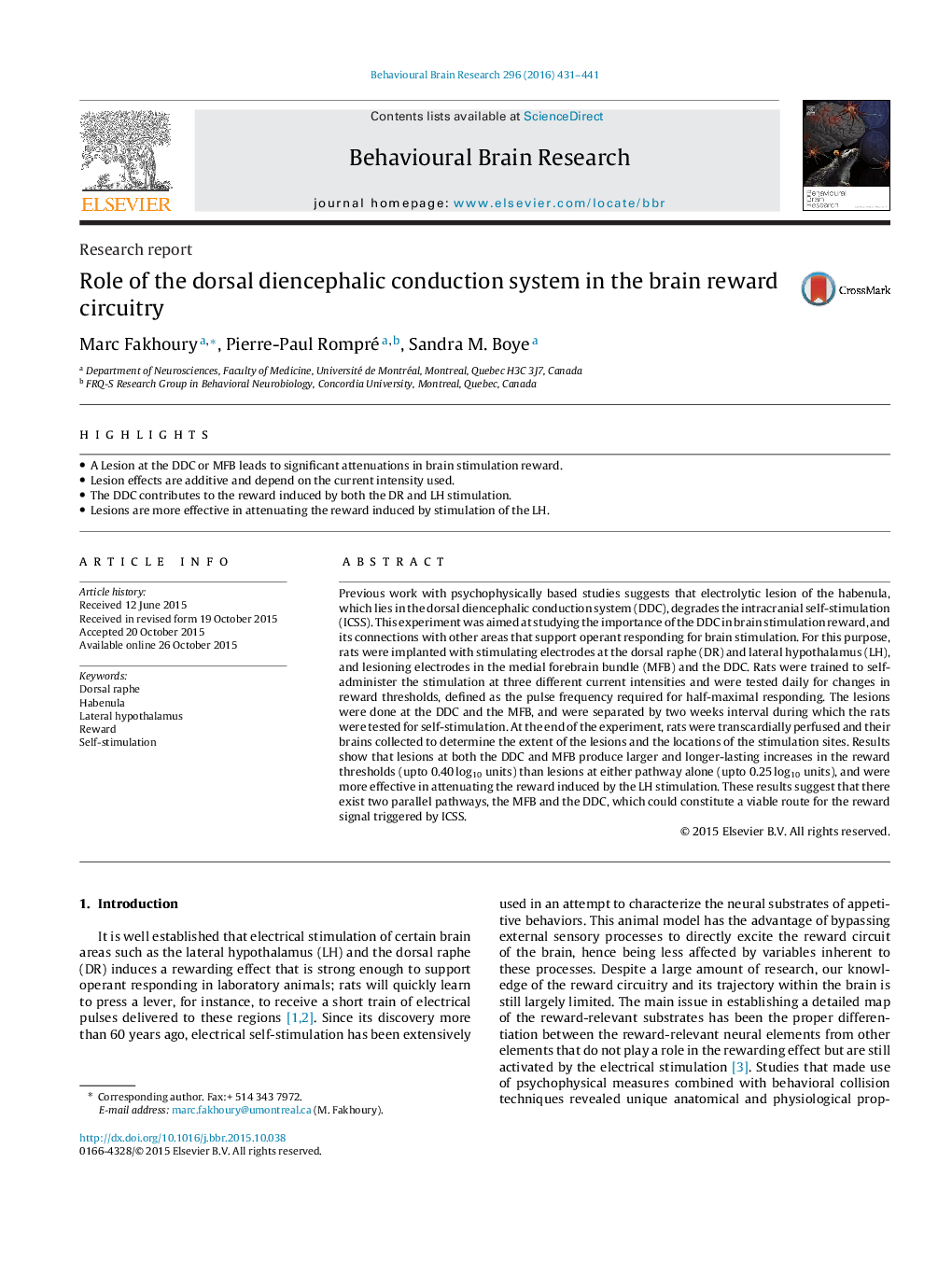| Article ID | Journal | Published Year | Pages | File Type |
|---|---|---|---|---|
| 4312353 | Behavioural Brain Research | 2016 | 11 Pages |
•A Lesion at the DDC or MFB leads to significant attenuations in brain stimulation reward.•Lesion effects are additive and depend on the current intensity used.•The DDC contributes to the reward induced by both the DR and LH stimulation.•Lesions are more effective in attenuating the reward induced by stimulation of the LH.
Previous work with psychophysically based studies suggests that electrolytic lesion of the habenula, which lies in the dorsal diencephalic conduction system (DDC), degrades the intracranial self-stimulation (ICSS). This experiment was aimed at studying the importance of the DDC in brain stimulation reward, and its connections with other areas that support operant responding for brain stimulation. For this purpose, rats were implanted with stimulating electrodes at the dorsal raphe (DR) and lateral hypothalamus (LH), and lesioning electrodes in the medial forebrain bundle (MFB) and the DDC. Rats were trained to self-administer the stimulation at three different current intensities and were tested daily for changes in reward thresholds, defined as the pulse frequency required for half-maximal responding. The lesions were done at the DDC and the MFB, and were separated by two weeks interval during which the rats were tested for self-stimulation. At the end of the experiment, rats were transcardially perfused and their brains collected to determine the extent of the lesions and the locations of the stimulation sites. Results show that lesions at both the DDC and MFB produce larger and longer-lasting increases in the reward thresholds (upto 0.40 log10 units) than lesions at either pathway alone (upto 0.25 log10 units), and were more effective in attenuating the reward induced by the LH stimulation. These results suggest that there exist two parallel pathways, the MFB and the DDC, which could constitute a viable route for the reward signal triggered by ICSS.
